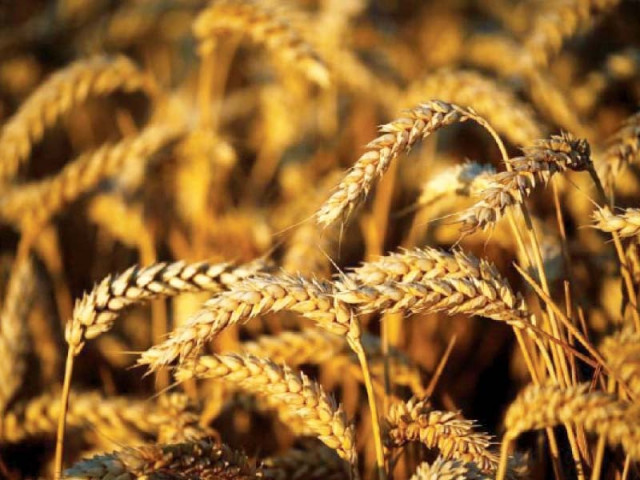Navigating compliance in wheat imports
Complexities of agricultural trade oversight and role of SPS measures in safeguarding health

Wheat import, along with other agricultural commodities, falls under the regulation of the Sanitary and Phyto-Sanitary (SPS) measures. The SPS Agreement, an international treaty under the World Trade Organisation (WTO), explicitly acknowledges governments’ authority to safeguard human, animal, and plant health based on scientific principles.
These measures primarily focus on quarantine and biosecurity protocols to shield human, animal, and plant life from the risks associated with pests, diseases, additives, toxins, and contaminants in food and feed. Consequently, ensuring compliance with SPS regulations becomes a crucial aspect of recent wheat imports, requiring the cooperation of both importing and exporting countries to meet the necessary conditions.
In Pakistan, the regulation of plant quarantine is governed by the Pakistan Plant Quarantine Act of 1976 and the Pakistan Plant Quarantine Rules of 1967. Since 1954, Pakistan has been a signatory to the International Plant Protection Convention (IPPC), and its Department of Plant Protection (DPP) operates as the National Plant Protection Organisation (NPPO) under the IPPC provisions and the SPS Agreement of the WTO.
The enforcement of the Plant Quarantine Act and its regulations falls under the jurisdiction of the DPP, an attached department of the Ministry of National Food Security and Research (MNFSR).
The DPP is tasked with regulating trade in agricultural commodities, with a focus on ensuring pest and disease-free imports and exports. The process involves importers submitting requests to the DPP, which then issues import conditions established for various agricultural commodities.
All imports of plant and plant material undergo Pest Risk Analysis (PRA) to evaluate potential phytosanitary risks associated with specific commodities and develop management strategies to mitigate these risks during importation. Based on the outcome of the PRA, import conditions are determined for a particular commodity from a specific country and communicated to the exporting country via an ‘Import Permit’. The exporting country must then ensure compliance with Pakistan’s phytosanitary import conditions through quarantine inspection and any necessary treatment, certifying the consignment’s pest-free status with a valid ‘Phytosanitary Certificate’ issued by their National Plant Protection Organisation (NPPO), which is the DPP. Upon arrival at a specified port of entry in Pakistan, the consignment undergoes quarantine inspection in accordance with the import conditions outlined in the Import Permit.
Following inspection, Plant Quarantine Inspectors decide whether to release, treat, destroy, or return the consignment. Upon satisfactory inspection or treatment, the DPP issues a Plant Protection Release Order (PPRO) and notifies Pakistan Customs to release the consignment. This process is highly technical and time-consuming.
The Phytosanitary Certificate for Import of Goods mentioned in the ‘Import Permit’ issued by the DPP typically remains valid for a maximum of three (03) months. The exporting country must export the commodity within this three-month period and ensure compliance with Pakistan’s phytosanitary import conditions using a valid Phytosanitary Certificate issued during this timeframe. If, for any reason, importation is not completed and the Import Permit expires, a new Import Permit may be issued upon the importer’s request for another three-month period.
The purpose of the Import Permit is to inform the exporting country that Pakistan has granted market access for a specific plant-based commodity from a specific origin, under specific phytosanitary import conditions. The DPP issues Import Permits to importers who meet the registration requirements outlined in the Import Policy Order issued by the Ministry of Commerce, government of Pakistan. Authorised importers must submit an application to the DPP using Form-I (available on the DPP website and in hard copy). Upon fulfilment of the required formalities prescribed in the Pakistan Plant Quarantine Act of 1976 and Rules of 1967, the Import Permit is issued.
To mitigate the risks of pests and diseases, certain agricultural commodities with high phytosanitary risks require special Phytosanitary Treatments, such as fumigation, cold treatment, heat treatment, irradiation, and vapour heat treatment.
These treatments are mandatory for commodities like wheat, beans, chickpeas, pulses, crude drugs, medicinal herbs, lucerne, oats, sunflower, canola seed for oil extraction, rapeseed for oil extraction, cotton, raw jute, sorghum for consumption, soybean meal, sunflower meal, and tobacco. The specific Quarantine objects, Phytosanitary Import Conditions, and Additional Conditions are determined through Pest Risk Analysis (PRA). These conditions may be adjusted over time based on subsequent PRAs, considering factors like climate change and variations in pest profiles for specific commodities in particular countries.
Under the Pakistan Plant Quarantine Act of 1976 and Pakistan Plant Quarantine Rules of 1967, Pakistan has the authority to import wheat from countries that are signatories of the IPCC, provided the importing country’s conditions are met. This process entails thorough testing of wheat samples by registered laboratories in both the exporting and importing countries to ensure compliance with SPS conditions.
It is illegal for any ship to be diverted from open seas to an importing country without meeting SPS conditions prior to export to that specific country. The recent detection of insect pests in a significant portion of the consignment of recently imported wheat indicates violations of SPS regulations. Therefore, there are no shortcuts for the importation of wheat or other agricultural commodities.
THE WRITER IS A PHD IN NATURAL RESOURCES, NATIONAL AND GLOBAL CLIMATE, ENVIRONMENT AND FORESTRY EXPERT
Published in The Express Tribune, June 3rd, 2024.
Like Business on Facebook, follow @TribuneBiz on Twitter to stay informed and join in the conversation.



















COMMENTS
Comments are moderated and generally will be posted if they are on-topic and not abusive.
For more information, please see our Comments FAQ